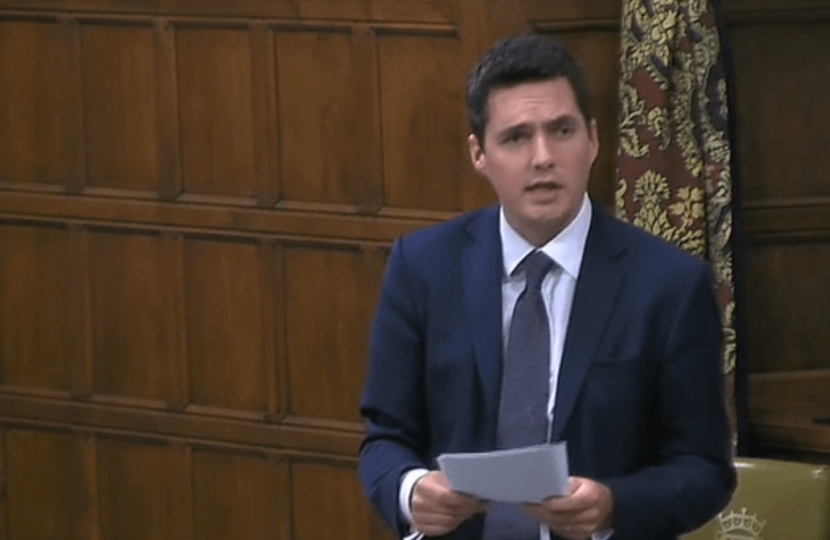
My speech in the Westminster Hall Debate on an e-Petition Relating to Immigration:
I am grateful for the opportunity to contribute to the debate, Mr Walker, and welcome the public engagement that has caused it to be held. It is right that we discuss matters on which significant numbers of constituents have expressed concerns to the House, and that we have the opportunity to allay the concerns and fears that have clearly manifested themselves in the language used in the petition.
The debate on immigration is not new to me. Of course, by the time of the 2015 general election, it was well known to us all, but in 2008 I was selected to stand in North East Derbyshire, which was regarded as a rock-solid Labour former mining seat. In 2015, I stood in Bexhill and Battle and was fortunate enough to be elected. Both constituencies displayed a lot of concern about immigration, which is interesting because both have a lower exposure to immigration in terms of numbers of constituents. Perhaps that lack of exposure in certain parts manifests itself in concern, whereas in other constituencies, where immigration numbers are higher, the constituents are more comfortable. I would say that it is because they can see the many benefits to immigration.
Although I maintain that the language of the petition is perhaps on the harsh side, I acknowledge that many of our constituents have entirely legitimate concerns about immigration, including control, security and access to infrastructure. Those need to be answered and our constituents need to be reassured. Therefore, as we debate our need for more housing and more essential public services, such as health and education, and how we transport our constituents to work and across the country, we must consider the population size of the UK, which, as matters stand, is predicted to grow 25% by 2060.
In touching on those issues, I want to talk about the concerns raised directly by the petition and some underlying issues. First, I want to address the concept that foreign citizens are taking all our benefits. Over the years, there has been much debate about whether immigrants put more into the Exchequer than they take out in welfare and benefits. Like anything, that depends on how the data are interpreted. Two academics from University College London compiled a report on immigration between 1995 and 2011. On the one hand, the report concluded that EU immigrants put £20 billion more into the country than they took out in benefits, and non-EU immigrants put in £5 billion more than they took out. However, it also concluded that immigration would cost £120 billion. The difference between those conclusions is down to the fact that we clearly do not know how much immigration will cost and how much it will benefit us.
When looking at the cost of immigration, one tends to look at a group of individuals who have come to this country without having been educated here, and therefore have not put the burden of education on the state. There may also be an expectation that they will not burden the Exchequer with other large costs, including the cost of health, as they get older, and of pensions. There is an assumption, however, that immigrants will return to the countries from whence they came, but of course we do not know that they will do that. It is right to look again at this issue and keep asking ourselves whether the costs to the economy can be maintained.
However, I do not subscribe to the suggestion that benefits are the driver for immigration. I do not buy the idea that people are willing to risk life and limb and leave a lot of their family behind in another country purely to survive in this country on what is a relatively small amount of money when housing and other provisions are taken into account. I do not believe that at all. I am more inclined to believe that the type of person who has that get up and go and determination is the type of person who will set up their own business, contribute, work incredibly hard, enrich our country and be a success. However, I agree that anyone coming to this country must do so to work, study or shelter from persecution.
Foreign citizens are sometimes portrayed as taking our jobs. First, no one is entitled to a job; jobs have to be earned. When I speak to my constituent business owners—I have a considerable number of fruit farmers, for example, in my constituency—they say that they tend to hire migrant labour because they feel that they do not get the same productivity and work ethic in our native labour market. That is not universally the case, but it seems to be the perception. We have to help local people—young people, in particular—to break that perception and get jobs. An issue is the fact that businesses tend to hire from abroad, rather than from within, which is regrettable.
However, we know that UK productivity needs to increase. Since I was elected, there have been a number of debates in Parliament on the fact that our productivity numbers are not high enough. I would contend that without immigration our productivity would be poorer.


